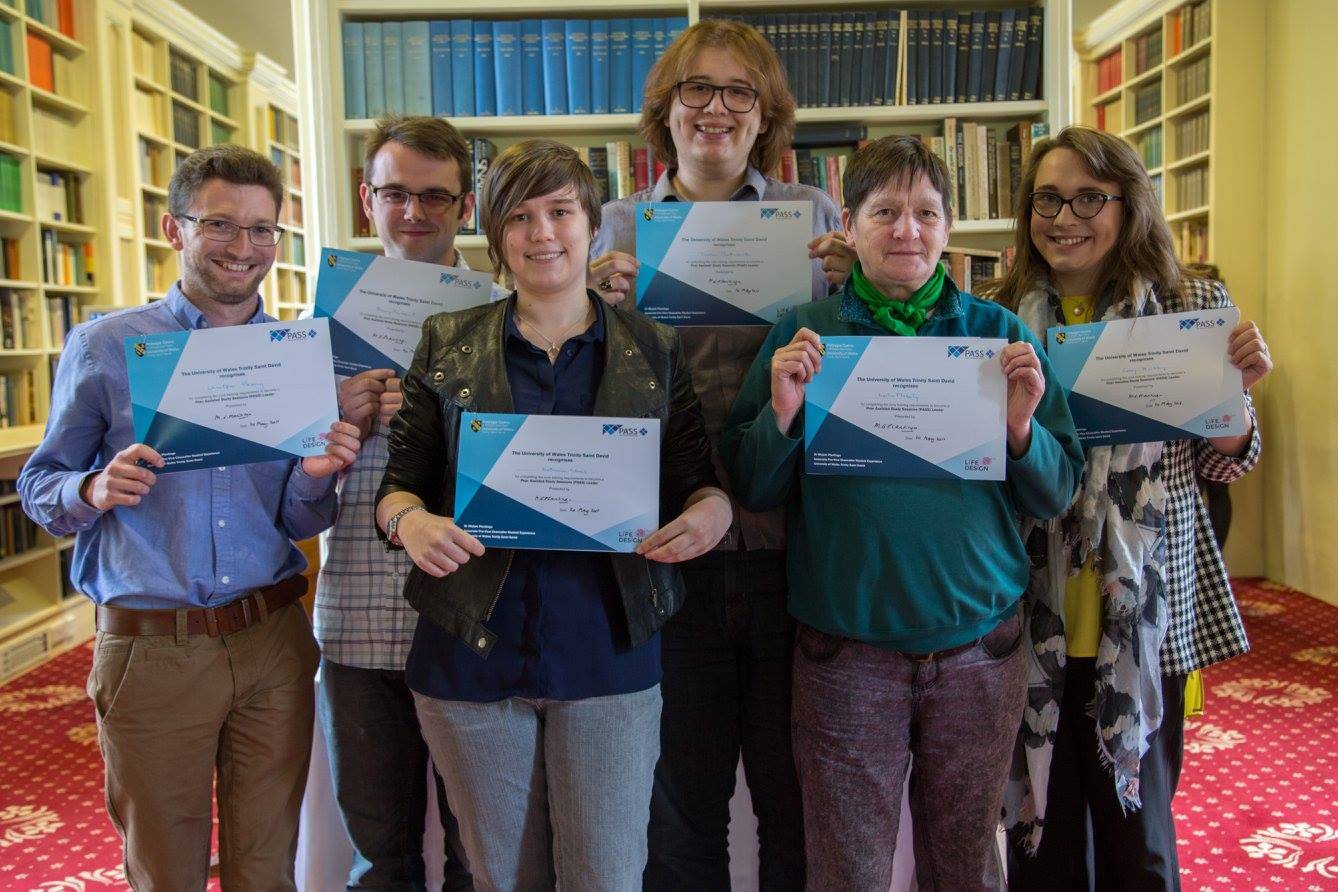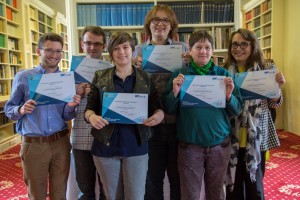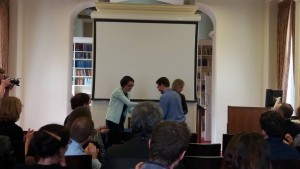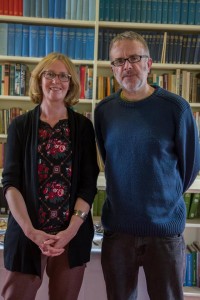Peer Assisted Study Sessions at UWTSD Lampeter

This blog was written by Tom Butterworth, a UWTSD Philosophy student.

I first heard about PASS coming to UWTSD Lampeter was when I received an email informing me that, if I wanted to, I could become a PASS leader. PASS is the Peer Assisted Study Sessions project. This was an interesting prospect as PASS seemed perfect for facilitating the learning of my fellow humanities students. PASS is unique in that the leaders (those who run the groups), do not impart knowledge but rather run sessions which act in a way like discussion groups based around the topics that either the lecturers or the students find to be tricky concepts that could do with some reinforcement.
Leaders are selected by lecturers and are then evaluated by the PASS supervisors during a training program on their ability to work in the PASS environment. This system means that lecturers can rest assured that those who are running the PASS sessions are a safe pair of hands in that they have both the knowledge and the personality best suited for the program.

PASS has been tested across many different universities and with many different types of courses but personally I think that it is perfectly suited to the humanities. This is due to the fact that at the heart of PASS is the idea that real progress can only happen via collaborated work. Having experienced students helping newer students sets up the right culture from the beginning for many students. This then will carry on with them throughout their careers, something I know all too well is vital in the interconnected world of the humanities.
Traditionally, PASS sessions work by having a pair of student leaders running a session for those in their first year of study, which is tied to a particular module. As mentioned previously the sessions are very flexible to suit the best interests of those who attend as well as the course.

For the Lampeter Campus at least, this approach has had mixed success with some PASS sessions working well with this model, while others struggled to attract the required student numbers. Interestingly the struggle to attract student numbers is a by-product of one of Lampeter’s greatest strengths: our fantastic student-to-lecturer ratios. In many universities PASS does well as it allows students to access reliable sources when it is almost impossible to get in contact with lecturers. In Lampeter we do not have that problem at all, which in turn means one of the greatest ways for PASS to retain student numbers has been lost. But this then means that we must adapt the PASS sessions to better suit Lampeter’s unique situation. One possible way is to offer a more structured format, such as a reading group, which is more integrated within the program of study, still optional but seen as a more integral part of the university experience, another possibility is to run it as a drop-in-session where students can come and go as they please over a session.
In conclusion, PASS is still in its infancy at UWTSD and has plenty of room to grow, adapt and prosper as time goes on. We are looking more and more into new ways of working with the various schools, and addressing new and interesting ways to boost the student experience, as well as create a culture in which students helping other students becomes increasingly normalised.
Leave a Reply